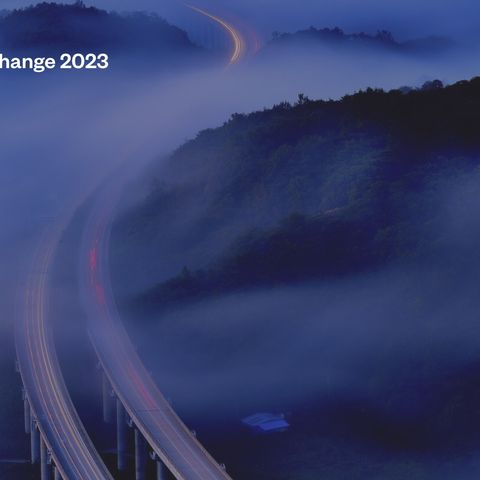
Info
My three top takeaways from this week’s podcast were: - An interesting idea by Jerry for uniting two very topical issues – AI and climate change. Regarding the next IPCC...
mostra di più
My three top takeaways from this week’s podcast were:
mostra meno
- An interesting idea by Jerry for uniting two very topical issues – AI and climate change. Regarding the next IPCC report, due out by 2029, Jerry made an interesting connection between the recent news that the world’s biggest AI developers have run out of internet, to train their models, with the great difficulty that IPCC authors are having, to read and curate all the world’s thousands of journal articles on climate change. He suggested the world’s academic journals throw open their doors – at present many are behind paywalls – to give AI access to these articles. In other words, to allow the AI models to get back on track with their training, in return for helping draft the next IPCC report! AI doing good!?
- Regarding another of his expert areas, on the climate resilience of the food system, I asked Jerry whether he was hopeful for new, more resilient crop varieties. He said there were advances in developing more drought-tolerant crops. But the problem is heat. Cereals that evolved in the Mediterranean just don’t perform well, once temperatures exceed around 31C. And many regions where these crops are grown today will exceed 31C. We also chatted about the possible role of biochar to sequester carbon in the soil, something Jerry is researching just now.
- And finally, when I asked Jerry about his reaction to a recent, stunning streak of global warming, with 10-straight, monthly records, through March, he said he was “scared”, partly because the relevant experts say they don’t know where the warming is coming from, implying climate change could be worse than expected, and partly because of the potential, direct consequences, for example for sea level rise.

Trascritto
22 NOV 2023 · My key takeaways from this podcast were:
- Trinity Agtech believes that carbon is just one part of the story, that farmers have much more to offer in terms of environmental benefits
- Their accounting tool is called Sandy, as “another person on the farm”
- The tool is used to measure changes in soil carbon, as well as farm impacts on soil, natural capital, biodiversity and water
- Carbon is still a big part of what they do. They measure changes in soil carbon – which farmers can monetise via offset markets – using a combination of soil sampling and modelling
- They find that farmers can use Sandy, and evidence of improved biodiversity, to achieve a premium on their carbon offsets.
- They cite one example where a farmer sold carbon offsets for £100 per tonne of CO2 avoided, because of additional biodiversity improvements, versus average trades of £35-40/ tCO2
- But this market for biodiversity premiums is in its infancy Trinity Agtech is a young company only a few years old, but says it already has 1,500 farming customers in Britain and the EU
- The company plans to expand next into the United States and South America
My three top takeaways from this week’s podcast were: - An interesting idea by Jerry for uniting two very topical issues – AI and climate change. Regarding the next IPCC...
mostra di più
My three top takeaways from this week’s podcast were:
mostra meno
- An interesting idea by Jerry for uniting two very topical issues – AI and climate change. Regarding the next IPCC report, due out by 2029, Jerry made an interesting connection between the recent news that the world’s biggest AI developers have run out of internet, to train their models, with the great difficulty that IPCC authors are having, to read and curate all the world’s thousands of journal articles on climate change. He suggested the world’s academic journals throw open their doors – at present many are behind paywalls – to give AI access to these articles. In other words, to allow the AI models to get back on track with their training, in return for helping draft the next IPCC report! AI doing good!?
- Regarding another of his expert areas, on the climate resilience of the food system, I asked Jerry whether he was hopeful for new, more resilient crop varieties. He said there were advances in developing more drought-tolerant crops. But the problem is heat. Cereals that evolved in the Mediterranean just don’t perform well, once temperatures exceed around 31C. And many regions where these crops are grown today will exceed 31C. We also chatted about the possible role of biochar to sequester carbon in the soil, something Jerry is researching just now.
- And finally, when I asked Jerry about his reaction to a recent, stunning streak of global warming, with 10-straight, monthly records, through March, he said he was “scared”, partly because the relevant experts say they don’t know where the warming is coming from, implying climate change could be worse than expected, and partly because of the potential, direct consequences, for example for sea level rise.
Informazioni
| Autore | Gerard Wynn |
| Organizzazione | Gerard Wynn |
| Categorie | Scienze |
| Sito | - |
| - |
Copyright 2024 - Spreaker Inc. an iHeartMedia Company
